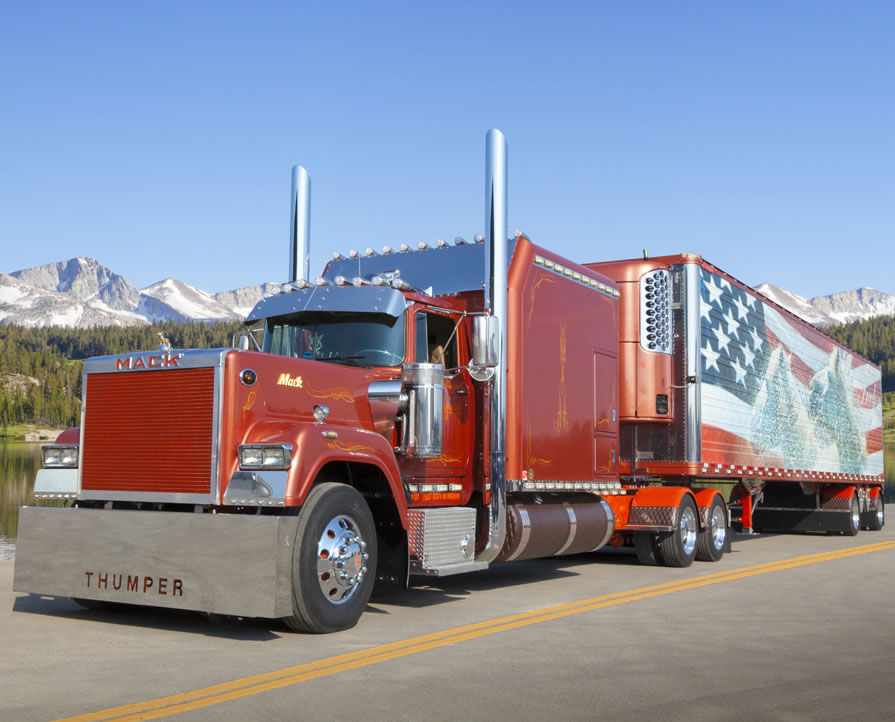2000 Peterbilt 379
The Peterbilt 379 runs on a Caterpillar C-15 engine with 475 horsepower. The Caterpillar C-15 is a diesel engine built with the latest technology to provide semi trucks with the power they need for extended highway driving. This six-cylinder engine has a four-stroke cycle diesel and a compression ratio of 18:1.
The Peterbilt features an extended front end and offers a variety of interior packages, ranging from cloth to leather interiors, power steering and the cab is equipped with air conditioning. The dashboard of the cab was designed to curve towards the driver to keep all controls close at hand.
This 2000 Peterbilt 379 is transporting a Peterbilt 357 Mixer. Ironically, the 357 itself is a concrete mixing transport truck that maintains the material's liquid state through agitation, or turning of the drum, until delivery. The 379’s steel frame and front axle capacity of 12,000 lbs & rear axle capacity of 38,000 lbs, with a rear end ratio of 3.36 provide the Peterbilt 379 with the strength and stability it needs to haul something of this nature.
- Wheelbase, inches: 250
- Measurements: Standard 119" bbc & Long Hood 127" bbc
- Tire Size, inches: 22.5" and 24.5"
- Type: Sleeper Conventional, Day Cab
- Displacement: 15.2-liter
- Fuel Type: Diesel
- Engine: Caterpillar, Detroit & Cummins
- Class: Class 8 (33,001 lbs. or more), Class 7 (26,001-33,000lbs) and Class 5 (16,001-19,500 lbs.)
- Horsepower @ rpm: 460-500 hp
- Torque @ rpm: Very Powerful
- Suspension: Air
- Number of Axles: Tandem
- Transmission: Manual
- Transmission Speeds: 13
- Fuel Capacity: 100-gallon
- Front Axle: 12,000 lbs.
- Rear Axle: 38,000 lbs.
- Compression ratio: 18.0:1
Powered By

All Photos: © Kimball Stock

